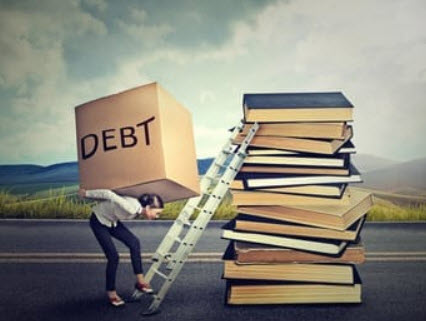If you have found yourself in serious financial distress, you may feel completely helpless-and very alone-at first. As the calls from debt collectors escalate, bills pile up, and your income is not sufficient to pay them, you may finally seek a final solution in filing for Chapter 7 or Chapter 13 bankruptcy. With the help of an experienced bankruptcy firm like Levitt & Slafkes, P.C., you will be able to find the best solution for getting back on the path to financial freedom.
While many debtors are interested in filing for Chapter 7, not everyone is eligible. If you don’t have enough income to cover your debts, or are unemployed and have very little income in general, chances are good you may be eligible. First though, you must pass the means test to find out. In proceeding forward with a Chapter 7, you will see most of your unsecured debts discharged, to include credit card and medical debts, default judgments, leases, personal loans, and more; however, there are some debts that are usually not dischargeable in Chapter 7.
Student loans are one debt that are famously not dischargeable in bankruptcy, unless you can prove undue hardship-and that is often very hard to do. Many tax debts cannot be discharged, as well as family support payments, or penalties you may be paying due to issues settled in criminal court, such as a DUI, drunk driving accident, or other legal problems. It is also very important to be thorough when listing all your debts in filing for your bankruptcy, because those that are not listed cannot be discharged.
If you have a home that is in foreclosure, or a car close to being repossessed, the automatic stay will give you the breathing time you need to figure out what you want to do, whether you want to give up such a major possession or try to negotiate with the lender through your bankruptcy attorney.
If you are not eligible for Chapter 7, you will need to file for a Chapter 13 reorganization plan, which takes roughly three to five years. All debts can be repaid to creditors in the repayment plan-and although the process takes longer-you may be relieved to find that you can keep your home even if it was going into foreclosure, rolling the back payments into your plan. That is a feasible solution if you are making mortgage payments every month, and a similar plan may be available if you are behind on car payments too.
As for Chapter 13, debts that are not dischargeable include all the same as Chapter 7, but you may find some welcome flexibility in paying back student loans as your payments are reduced by the bankruptcy trustee as your plan is created-along with a delay as the automatic stay goes into effect.
The experienced attorneys at Levitt & Slafkes, P.C. can answer all your questions regarding bankruptcy issues. Contact us today so one of our attorneys can evaluate your case and discuss the best options available to you. We are here to help! Call us at 973-323-2953, or contact us online to schedule a free consultation.
We are proudly designated as a debt relief agency by an act of Congress.



